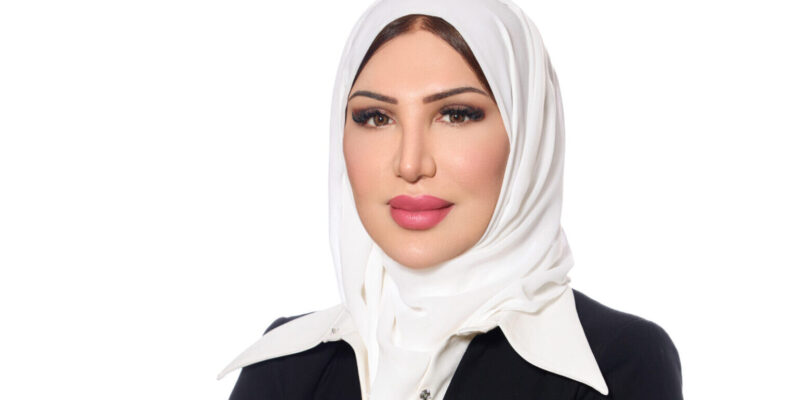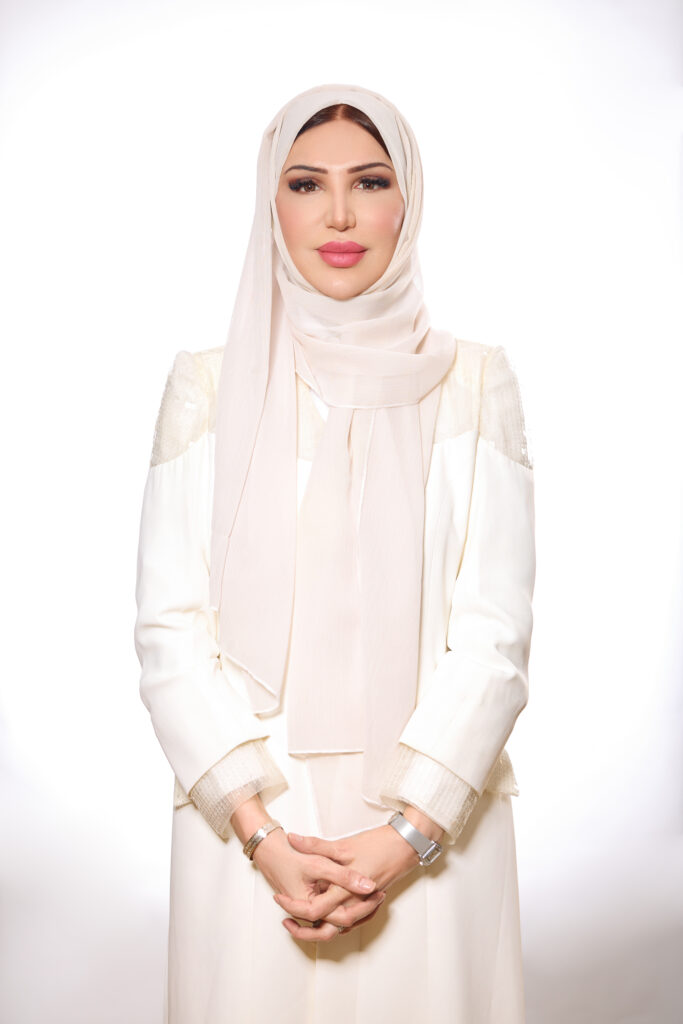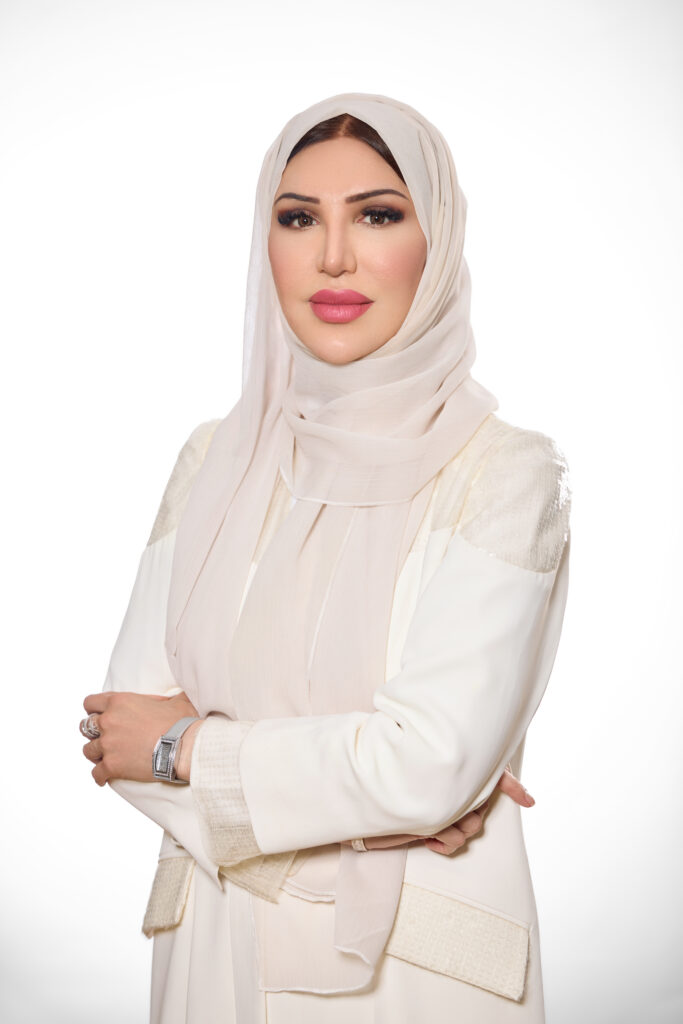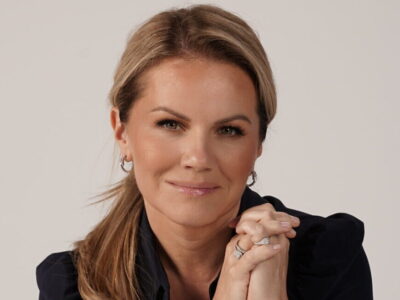
Across the Gulf region, the discourse on women’s leadership is shifting—from possibility to precedent. In industries once marked by limited inclusion, a new standard of excellence is emerging, driven by those who understand that sustainable progress requires both vision and structural change. At the intersection of strategic development and human capital, a distinct model of leadership is taking shape—one that is pragmatic, deeply informed, and committed to elevating others. Behind this evolution is a deliberate effort to challenge barriers, foster institutional accountability, and cultivate the conditions in which women not only participate, but lead. The impact of this work is measurable, its direction intentional, and its message clear: progress is built, not inherited.
Dr. Buthaina Al Ansari stands as one of the key architects of this change. A strategist, entrepreneur, and advocate for gender equity, her work spans sectors critical to Qatar’s development—from human resources and national policy to entrepreneurship and education. As the founder of Tamkeen Training and Consulting and a board member of several leading organizations, she has shaped frameworks that prioritize both institutional excellence and individual empowerment. Her leadership is not defined by visibility alone, but by the systems she builds, the policies she influences, and the women she equips to lead with agency and confidence.
Qatarization as a Strategic Imperative
Dr. Buthaina’s focus on workforce development and Qatarization has been a consistent theme throughout her career. She sees it not just as a policy goal, but as a strategic foundation for the country’s future. When asked what shaped this commitment, she shared the experiences that guided her path.
“My journey has always been fueled by a deep belief that true national development begins with investing in human capital. Growing up witnessing Qatar’s rapid transformation, I realized that sustainable growth cannot be achieved solely through infrastructure or wealth — it must be anchored in empowering our people. Qatarization, to me, is not just a policy; it’s a strategic mission to build a resilient, knowledgeable, and future-ready workforce capable of carrying the nation’s aspirations forward. This conviction inspired me to champion workforce development at every stage of my career, ensuring that talent and potential are nurtured, not just managed.”
This perspective has not only shaped her work but has also influenced the broader conversation around how nations prepare for the future—by prioritizing the development of their people.
Redefining Leadership through Impact
Her approach to leadership is rooted in a strong sense of responsibility—not only to her role, but to the broader goals of national development. For her, leadership is measured not by position, but by the impact it creates. When asked how she defines leadership in the context of nation-building, she explained:
“Impactful leadership, in the context of nation-building, is the ability to inspire collective ambition while creating tangible, long-term value for society. It’s about vision beyond self-interest — a leadership that prioritizes building institutions, nurturing future generations, and aligning economic prosperity with social cohesion. True leaders invest in people, embrace innovation, and remain agile in the face of global change, ensuring their nation’s relevance, resilience, and dignity on the world stage.”
This definition underscores her belief that leadership is ultimately about stewardship—of people, institutions, and the future they will shape.
Human Capital: The Core of High-Performance Culture
Drawing from her extensive experience in senior HR roles at institutions such as Ooredoo and the Qatar Investment Authority, she brings a deep understanding of what it takes to build strong, sustainable organizational cultures. When asked which HR strategies are most often underestimated in the pursuit of high performance, she highlighted two critical areas:
“One fundamental strategy often overlooked is the alignment of organizational purpose with individual meaning. Many institutions focus on policies and performance metrics, but fail to ignite a sense of belonging and shared mission within their workforce. High-performance cultures are built when employees see themselves as active stakeholders in the organization’s journey, not just resources to be managed. Another overlooked aspect is leadership development at all levels — investing early in future leaders, not just reacting to leadership gaps when they arise. Building trust, transparency, and a culture of continuous learning are non-negotiable pillars for any high-performing organization.”
Dr. Dr. Buthaina’s emphasis on aligning organizational purpose with individual meaning is strongly supported by research. A 2022 McKinsey & Company study found that employees who find purpose at work are four times more likely to be engaged and five times more likely to remain with their organization long term. Similarly, the Center for Creative Leadership highlights that early and continuous investment in leadership development is a key driver of organizational agility and innovation. These findings reinforce the idea that performance is not driven solely by policy or structure—but by people who feel connected, valued, and equipped to lead.
Transforming Qatarization at Ooredoo
During her time at Ooredoo, Dr. Buthaina approached Qatarization not as a mandate to be managed, but as a strategic opportunity to drive inclusion and sustainable growth. One of the core challenges, she recalls, was “shifting perceptions — both among young Qataris and within the corporate environment.”
Many emerging professionals lacked structured guidance, clear career trajectories, and, crucially, the confidence that their contributions could shape the future of the organization.
Internally, the task was to reframe Qatarization as more than a compliance requirement.
“It was essential to move Qatarization from being seen as a compliance metric to a business imperative tied to sustainable growth,” she explains.
That shift required deliberate action: the launch of integrated talent development programs, strategic partnerships with educational institutions, and a cultural shift that put national success stories at the forefront.

For Dr. Buthaina, the goal was clear: “It was about humanizing the policy and making it a national pride, not just a corporate requirement.”
Beyond Inclusion: Embedding Equity
Advancing women into leadership roles remains one of the most pressing challenges—and opportunities—for organizations across the region. While meaningful strides have been made, Dr. Al Ansari emphasizes that progress must move beyond surface-level commitments. For her, real inclusion starts when companies embed equity into the core of how they operate.
“We must embed diversity and inclusion into organizational DNA — not as corporate slogans, but as measurable priorities linked to leadership accountability,” she stresses.
She also points to the importance of practical, structural tools: clear promotion criteria, mentorship and sponsorship programs, and more inclusive leadership pipelines. Just as vital is the work of cultural change—challenging unconscious bias and increasing the visibility of female role models. As she notes, “Showcasing more visible female role models [is key] to inspire confidence in the next generation.”
Her vision is both strategic and personal: a leadership structure where women rise not through exception, but through expectation.
Government and Business: A Dual Mandate
Building inclusive workplaces in the Middle East requires more than isolated corporate efforts—it demands a coordinated push from both public and private sectors. Dr. Al Ansari believes that true progress comes when governments and businesses act as partners in shaping inclusive ecosystems.
“Governments can set the tone through progressive policies, incentives, and public-private initiatives focused on gender equity,” she explains.
But legislation alone isn’t enough. For real change to take hold, she argues, corporations must go beyond regulatory compliance.
“Corporations must move from compliance to commitment — embedding inclusion into leadership evaluations, KPIs, and company culture.”
The most effective efforts, in her view, are collaborative—joint investments in leadership development, entrepreneurship platforms, and education that begin early and reach broadly. This kind of alignment, she suggests, is key to creating sustainable and inclusive growth across the region.
Change with Purpose
Driving organizational change requires more than technical expertise—it demands courage, clarity of purpose, and a willingness to challenge the status quo. For Dr. Al Ansari, successful transformation is never about change for its own sake.
“Change must be purposeful, people-centered, and aligned with strategic vision,” she says.

Her approach starts with listening—to data, to employees, and to the broader mission—and then acting decisively and with intent.
This mindset has defined some of the boldest moves in her career. One standout example was her decision to push for a complete overhaul of traditional talent management systems.
“It involved restructuring reward mechanisms, introducing merit-based promotions, and challenging long standing norms,” she recalls.
The decision came with risk—and initial resistance—but the long-term results spoke for themselves: increased engagement, improved retention, and a healthier leadership pipeline.
Ultimately, her view of change is rooted in leadership. “It’s a chance to set a new standard of excellence and resilience,” she says—an opportunity not just to improve systems, but to redefine what’s possible.
Education as the Leadership Foundation
For Dr. Al Ansari, education has never been separate from leadership—it’s the foundation of how she leads. Her academic journey, culminating in a Ph.D. in Business Administration, has shaped her decision-making with a rare combination of analytical rigor and forward-looking vision.
“It taught me to think critically, analyze systems deeply, and make decisions based on a balance of data, intuition, and long-term vision,” she reflects. Academia didn’t just sharpen her thinking—it instilled a respect for diverse perspectives and a lifelong commitment to evidence-based leadership.
That same philosophy extends to how she views leadership in a fast-changing world.
“Continuous learning is no longer optional; it is essential for survival and relevance,” she asserts.
Dr. Al Ansari believes that adaptability, curiosity, and humility are what distinguish enduring leaders. As she puts it, “Lifelong learning is the only way to remain visionary in an ever-evolving world.”
The Power of Mentorship and Representation
Every leader’s path is shaped by the people who walk beside them, and for Dr. Al Ansari, mentorship has been both formal and quietly influential.
“Some were formal mentors; others influenced me simply through their example — demonstrating resilience, wisdom, and unwavering commitment to service,” she says.
Her journey was also lit by the trailblazing women who came before her, proving that leadership is not a privilege to be claimed, but a responsibility to clear the way for others.
To the next generation of female leaders across the Arab world, her message is direct and urgent:
“Don’t wait for permission to dream big or to lead boldly. Your voice, vision, and courage are needed now more than ever.”
In her view, leadership is not about conforming to legacy expectations — it’s about rewriting the narrative with authenticity and purpose.
Legacy and the Future of Leadership
At this stage in her career, Dr. Al Ansari’s focus has shifted from breaking barriers to building futures. Her current work centers on empowering women in high-impact sectors like artificial intelligence and strategic governance—fields she sees as central to shaping the region’s long-term resilience. She is also channeling her efforts into connecting education, leadership development, and entrepreneurship to cultivate sustainable economic ecosystems for the next generation.
Leadership that Redefines a Region
Looking ahead, her vision is rooted in legacy.
“It is about planting seeds that will flourish long after my journey evolves,” she says.
Professionally, she remains committed to influencing national and regional strategies that prioritize human capital and economic diversification. Personally, she’s focused on mentoring the next generation of change-makers—leaders who will carry forward the values of service, innovation, and ethical stewardship.
Dr. Buthaina Al Ansari’s journey is a proof of what purposeful leadership can achieve — not only within institutions, but across an entire nation’s trajectory. Her work continues to shape the future of Qatar’s workforce, inspire the advancement of women in leadership, and redefine what inclusive, values-driven leadership looks like in the Arab world. As she shifts her focus toward legacy and mentorship, her impact endures in every empowered leader, every bold reform, and every young voice rising with confidence to help shape the region’s future.














